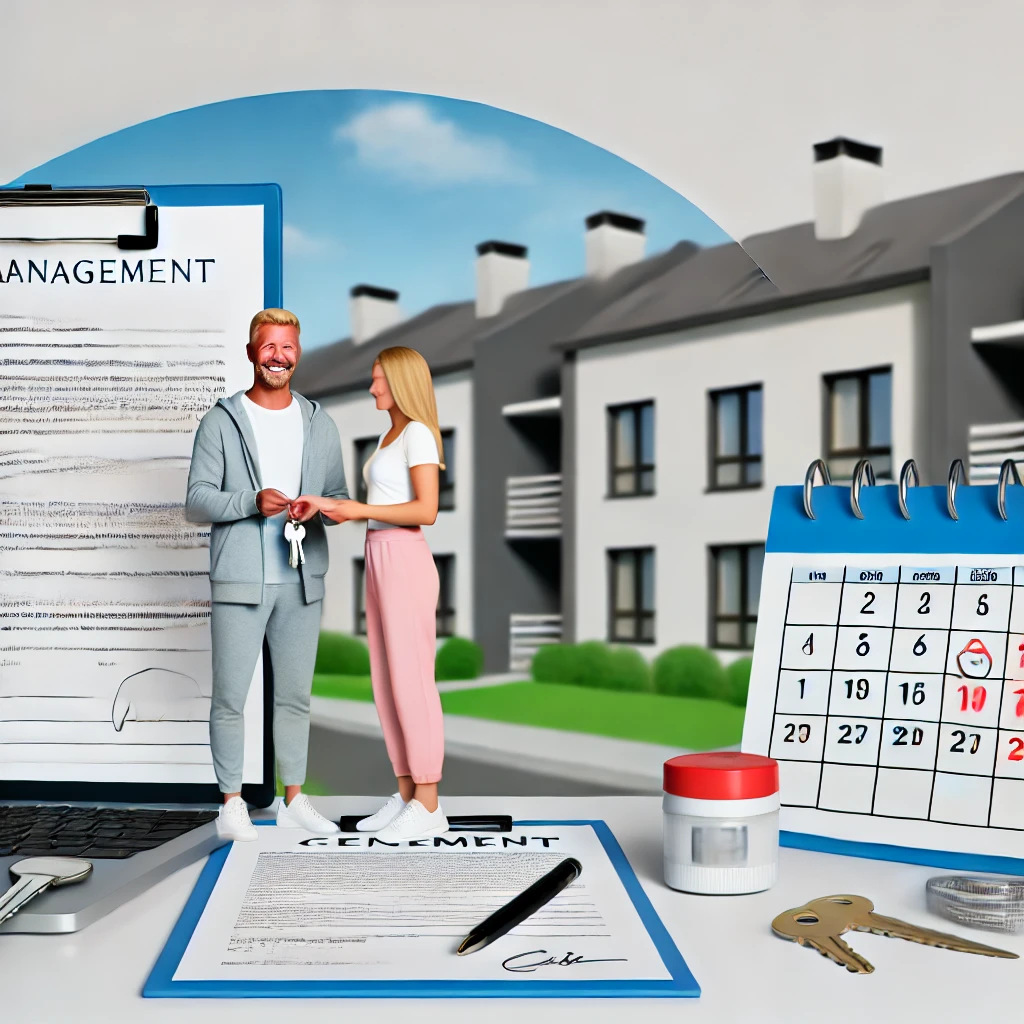Owning rental properties can be a lucrative investment, but maximizing your rental income requires more than just collecting monthly payments. Effective property management is the key to ensuring your rental property remains profitable, your tenants are satisfied, and your investment continues to grow in value. Whether you’re a seasoned landlord or just starting, these essential tips will help you optimize your rental income and make the most of your property.
1. Set the Right Rent Price
Pricing your rental correctly is the first step in maximizing income. If you set the rent too high, you risk extended vacancy periods; if it’s too low, you leave money on the table. To find the sweet spot, conduct thorough market research to understand the going rates for similar properties in your area. Consider factors such as location, amenities, and the overall condition of the property. Regularly reassessing your rental rates and adjusting them based on market trends will help you stay competitive and profitable.
2. Attract and Retain High-Quality Tenants
A good tenant is worth their weight in gold. High-quality tenants pay rent on time, take care of the property, and are more likely to renew their lease, reducing turnover costs. To attract these tenants, ensure your property is well-maintained and marketed effectively. Highlight features that appeal to your target demographic, such as proximity to schools, public transportation, or modern amenities.
Once you have good tenants, focus on retaining them by providing excellent customer service. Address maintenance requests promptly, be responsive to their concerns, and consider offering lease renewal incentives, such as a slight discount or small upgrades to the property.
3. Reduce Vacancy Rates
Vacancies are the enemy of rental income. The longer your property sits empty, the more money you lose. To minimize vacancies, be proactive in marketing your property as soon as you know a current tenant is planning to move out. Utilize online rental platforms, social media, and even local real estate agents to reach potential tenants.
Additionally, consider offering flexible lease terms, such as shorter leases or month-to-month agreements, to appeal to a broader range of renters. Keeping your rental property occupied as much as possible will ensure a steady stream of income.
4. Maintain Your Property
A well-maintained property not only attracts quality tenants but also justifies higher rent. Regular maintenance prevents small issues from becoming costly repairs and ensures your property remains in top condition. Schedule regular inspections to check for any necessary repairs and stay on top of routine maintenance tasks like cleaning gutters, servicing HVAC systems, and landscaping.
Investing in curb appeal can also make a significant difference. Simple upgrades like fresh paint, new fixtures, or landscaping improvements can increase your property’s value and allow you to charge higher rent.
5. Implement Efficient Rent Collection Processes
Streamlining your rent collection process is crucial for maintaining consistent cash flow. Offer tenants multiple payment options, such as online payments, direct bank transfers, or automated payment systems. Automated reminders and clear, consistent communication about rent due dates can help ensure timely payments.
It’s also important to have a clear policy for late payments. Enforcing late fees and penalties can discourage tenants from paying rent late and protect your income stream.
6. Consider Property Upgrades and Add-Ons
Upgrading your property can significantly increase its rental value. Consider making improvements that provide a good return on investment, such as modernizing the kitchen or bathroom, adding energy-efficient appliances, or installing smart home features. These upgrades not only make your property more appealing to potential tenants but can also justify a higher rent price.
Additionally, offering add-ons like covered parking, storage units, or including utilities in the rent can attract tenants willing to pay a premium for these conveniences.
7. Stay Compliant with Laws and Regulations
Understanding and complying with local, state, and federal landlord-tenant laws is essential for avoiding legal issues that could impact your rental income. Stay informed about regulations related to fair housing, security deposits, lease agreements, and eviction procedures. Non-compliance can lead to costly fines, legal battles, and even the loss of your rental license.
Consider working with a property management company or legal advisor to ensure you’re always in compliance and to handle any potential legal issues that arise.
8. Utilize Professional Property Management Services
If managing your rental property becomes too time-consuming or complex, consider hiring a professional property management company. These experts can handle everything from tenant screening and rent collection to maintenance and legal compliance. While property management services come with a fee, they can save you time, reduce stress, and often help maximize your rental income by ensuring your property is managed efficiently and effectively.
Conclusion
Maximizing your rental income requires a proactive approach to property management. By setting the right rent price, attracting and retaining quality tenants, reducing vacancies, maintaining your property, and staying compliant with legal regulations, you can ensure your rental property remains a profitable investment. Whether you choose to manage your property yourself or hire professionals, the key is to stay engaged and continuously look for ways to improve your rental management practices. With the right strategies in place, you can enjoy a steady and growing stream of rental income for years to come.
